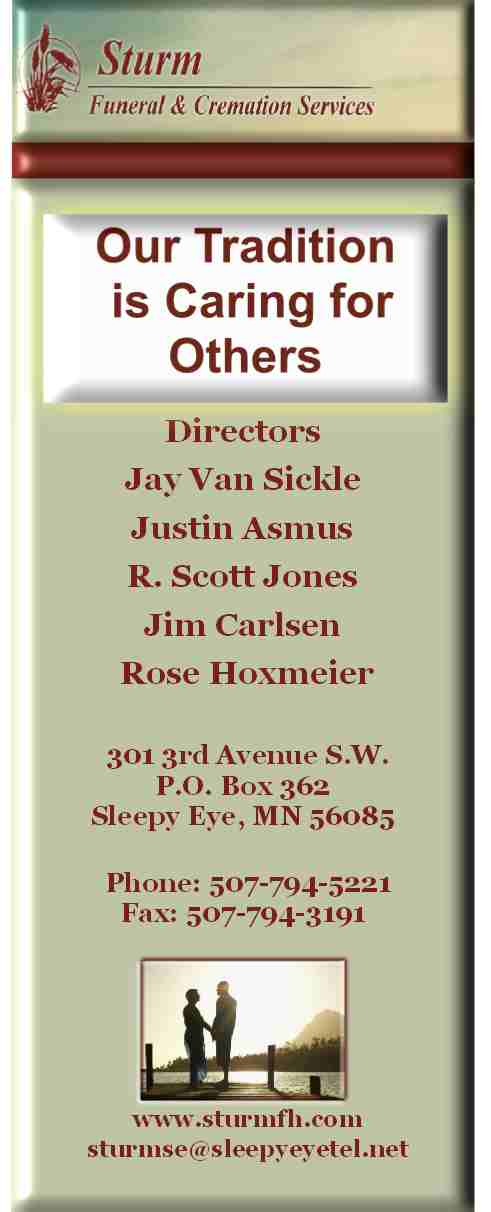I was up in the Cities on a recent Saturday. It was my first Minnesota United soccer match at Allianz Field. I learned a bit about soccer when son Ezra played. I know the playing field is called a pitch. I kind of figured out offsides but not really stoppage time.
It was pleasant weather and a close game that our Loons won 2 to 1.
Baseball will always be my first love, but I can begin to see why soccer is the planet’s favorite. The steady play with repeated ebbs and flows had 19,000 of us intent on the action.
Allianz Field was as advertised, a place dedicated to this single activity, every inch of it for the game and its fans. Plus, no commercial timeouts!
I said I was in the Cities. It was St. Paul actually. As long as my consciousness goes back, I’ve lumped Minneapolis, St. Paul, suburbs, and exurbs together and called them the “Cities.”
Later as I left the Cities, driving past cornfields, I thought about cities, small c. The experience I’d just enjoyed was, by definition, an urban experience. Things like pro sports stadiums aren’t built in small towns. They require a certain population to sustain them.
The same is true for charming Target Field. But it’s not just sports venues that feed off a large number of human beings. Things like Orchestra Hall, Minnesota Zoo, the airport, even the State Fair couldn’t sprout in smaller cities.
In addition, there are the top-end medical facilities that we’ve all been to with family in the Twin Cities. I’m glad the Cities is there, or are there. Minneapolis, St. Paul and the burbs with their attractions are about 100 miles away. It’s a day trip I’ve done many times.
As I write, looking out at a soybean field, I enjoy where I live. I spent two years of college in the Twin Cities, and it wasn’t a great fit for this farm kid. For someone who’d grown up with cows for neighbors, hearing sirens out my open window at all hours was discomforting.
Of course, not everyone has a farm to come back to. Many classmates and friends did end up in the Cities or some city. That makes sense; that’s where the jobs are. I’ve written before about how our primary export from here isn’t crops or livestock. Rather, it has been generations of talented kids who couldn’t stay down on the farm once they had seen Paris, to paraphrase the World War I era song.
When I was younger, it seemed that everyone I met from the metro area was a generation or two removed from a farm. (For Black people, that would be a generation or two removed from the South, and one or two further back to slavery. I guess that’s “getting off the farm” in a different way.)
My observation was a generalization. But it does indicate the flow of people from the country to the city that has been a global trend since the Industrial Revolution. Raising up and sending off young people to good jobs in the city is one way rural and urban complement each other.
“We grow food that they eat,” is another, also part of a basic formula that exists around the world.
Our commodities need markets. “Markets” is another word for people.
Much has been made lately about a rural/urban divide. That’s not new. It seems to re-create itself every generation. I interned at the state Capitol in 1975. Then, many issues divided themselves by metro and outstate. That was more defining than party in the ’70s.
Of course, now everything is split by party, and the parties have sorted themselves geographically. Urban Republicans and rural Democrats are nearly extinct.
There has always been a strain of tension between city and country. But as with all things in our internet-connected, social media-laced world, it’s risen to a higher temperature.
Here in Minnesota, COVID-19 and the George Floyd murder came together to raise fevers on all sides of every divide. Rural/urban was not immune.
We all know people who talk about cities with disdain, as if they are some kind of enemy. Urban elites are supposedly out to steal our children’s minds and warp our culture. It is as if the guardians of truth and goodness all live outside the 494/694 loop.
No doubt there are those in the city who look at us as backwards and unsophisticated.
These are stereotypes that have existed forever. But now they’ve been baked into our politics in an unhealthy way. There are people on both sides of the urban/rural line fence who drip with venom.
Tangled in the barbed wire of politics is the notion that cities are rife with crime, dangerous places for innocent country folk like us. That is being used as a bludgeon by certain politicians to scare up votes. It’s always been true that it’s best to avoid times and places that a modicum of common sense should inform you about. But to speak of every city as Sodom and Gomorrah is unhelpful and untruthful.
Minneapolis is not the hellhole some politicians want us to believe.
It is as if there are those in the outstate who want the metro to fail, as if that proves some kind of moral superiority.
For most of us who enjoy a Twins game, play at the Guthrie or lunch at a funky urban diner, we are rooting for our city cousins.
“We all do better when we all do better,” may be a political slogan, but there is truth in it.









